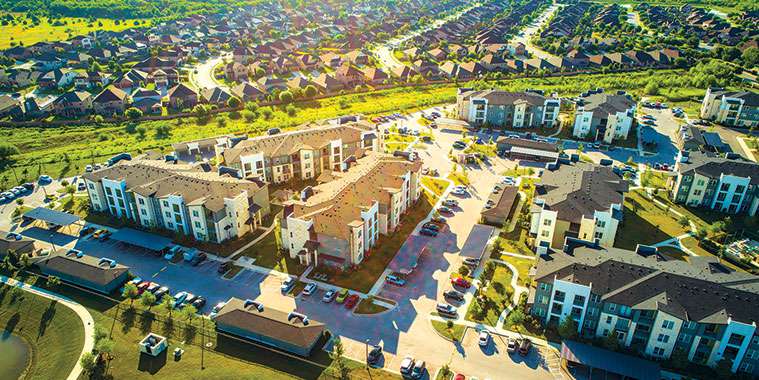By Peter Squire & Dr. Tom Carter
In 2010, WinnipegREALTORS® struck a task force to examine the rental market in Manitoba, in part to understand how it was creating issues for the entire local housing market due to extremely low rental vacancy rates. To assist them in this endeavour, WinnipegREALTORS® enlisted Professor Tom Carter — one of Canada’s foremost housing experts.
The task force led to the release of an important discussion paper in March 2011 on Manitoba’s rental housing shortage, and the establishment of a rental housing supply roundtable. The roundtable was co-chaired by former Family Services Minister responsible for Housing, Kerri Irvin-Ross, and WinnipegREALTORS® rental housing task force chair, Mel Boisvert. Professor Carter was one of the members of this roundtable.
In 2019, WinnipegREALTORS® asked Dr. Carter (now retired) to re-examine the rental housing market in light of what has transpired since the release of the 2011 rental paper. WinnipegREALTORS® received his rental update report this spring, and while it focuses more on Winnipeg than Manitoba, the report nevertheless is helpful in pointing out changes in the rental market and implications for future homeownership.
Will rental market problems slow movement into homeownership?
A healthy housing market that facilitates movement of households from one sector of the housing
continuum to another has always been an objective of WinnipegREALTORS®. Low interest rates and modest house prices in Winnipeg have kept homeownership reasonably affordable. Recently, a healthy rental market has also facilitated movement into homeownership and while Winnipeg renters face fewer difficulties than many other Canadian cities, households in the rental sector are facing more difficult circumstances.
Despite a balanced market with a vacancy rate of 3%, and positive trends associated with an increasing rental inventory, there are problems in the rental sector. Renters in general have lower incomes. In the Winnipeg CMA (Chief Metropolitan Area?), the average income of renters is $48,240, which is only 44% of the average income of owners at $110,264. When the income range is divided into deciles (10 equal parts), the very low-income of renters is obvious. More than a fifth (22%) of renters are in the bottom decile where incomes are less than $20,382. The proportion of owners in this category is only 3.6%. Large percentages of household types most likely to be renters are in this bottom income decile.
Adding to the challenges of those with lower incomes is the fact rents have been increasing faster than incomes. Average portfolio rents increased from $807 in 2010 to $1,070 in 2019, about 33%. This is greater than increases in household income, minimum wage and average weekly earnings over the same period. Rents are expected to continue to increase as there are a number of new units under construction which will drive up average rents as they enter the market, older stock is being renovated and the better quality of units after renovation will rent at higher amounts, while property taxes, sewer and water rates all continue to increase.
This will leave renters with much higher shelter cost-to-income ratios. Currently, almost 40% of renters spend 30% or more of their income on shelter. For owners, the same proportion is 12%. About 17% of renters spend 50% or more. Overall the type of households that rent have much lower incomes and spend much more of their income on housing, leaving them less money to spend on other basic necessities, but also less capacity to save to transition into ownership if that is what they want to achieve.
Addressing these problems is complex — requiring social, economic and housing policy initiatives. From the housing perspective, WinnipegREALTORS® will continue to advocate for change to ensure a healthy rental market and to facilitate the movement of first-time buyers out of rental into ownership.
Housing policy has shifted from building social/public housing to placing more emphasis on accommodating lower income households in the private rental sector using Rent Assist Programs.
Cost-saving measures have recently reduced benefit levels under the Program. This leaves many households struggling to meet market rents without experiencing housing affordability problems and falling deeper in poverty. WinnipegREALTORS® continue to advocate for improvements to the Rent Assist Program to improve affordable access to rental housing for low-and moderate-income households.
On the homeownership side, WinnipegREALTORS® continue to advocate for reductions to the cost of the land transfer tax to facilitate the movement of first-time buyers out of rental into ownership housing. Some other provinces with a land transfer tax provide reduced land transfer costs for first-time buyers and the Province of Manitoba may want to adopt a similar approach.
WinnipegREALTORS® continues to advocate for a healthy housing market where all tenures within the housing continuum are more effectively addressed to better meet Manitobans’ housing conditions and needs.
A healthy rental market helps lead to a healthy homeownership market.
Peter Squire is WinnipegREALTORS® Vice-President, External Relations & Market Intelligence.



